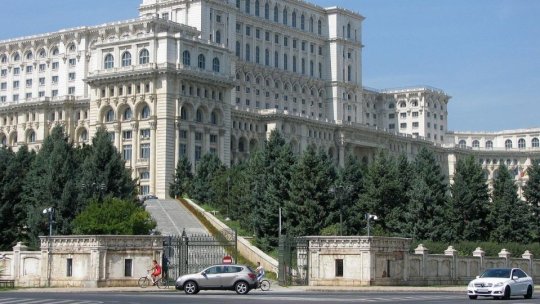Financial Press Review, November 24
Articles from Ziarul Financiar, Curierul Naţional, Bursa and Economistul.

Articol de Dinu Dragomirescu, 24 Noiembrie 2010, 19:29
The Ziarul Financiar headlines that 'the euro value goes up to 4.31 lei and markets come back to churn’. ‘If in the past issues regarding leu’s value were related only to disorders on the local political scene and the uncertainty regarding government finance now the oppression comes from abroad. Intensifying the conflict in the Korean Peninsula and the greater speculations on the financial market regarding the imminent turmoil in Portugal and Spain broke out a new wave of reluctance against the assets considered risky.
Under the title ‘Government doesn’t want a ten percent flat rate’, the Curierul Naţional points out that Finance Minister, Gheorghe Ialomiţianu does not stick up for the legislative initiative promoted yesterday by the twenty three PDL (Liberal Democratic Party) members of the Senate and sustained by PNL (National Liberal Party) and PSD (Democratic Socialist Party); the aforementioned initiative reveals a decreasing from sixteen to ten percent of the income tax quote on independent activities, salaries, rental and leasing, pensions, investments, farming, prizes and other incomes sources.
‘The Initiative does not refer to the tax on revenue’. According to the Curierul Naţional, one of the initiators is the PDL senator, Ion Ariton, who is also the present Minister of Economy’.
The Ziarul Financiar outlines that ‘it is not the first time when even MPs 'damage' and approve initiatives against the Government. The daily adds that ‘Economy forecasters qualify this as a stupidity’. In Romania there is an imbalance between very high labour taxes and taxes on equities which have been cut down.
If someone wants to spur employers to hire people taking into account the claim that his main concern is related to jobs, then he should diminished the allotments for social insurances and not the flat rate’, as the daily quotes the president of the Romanian Business People Association, Florin Pogonaru.
The Curierul Naţional wonders ‘why can it be possible only in Bulgaria?’. ‘Moving there, in an attractive country and fiscally steady is a phenomenon which will develop in the following year. It has been ten years since their tax system didn’t modify and business field has fiscal predictability while in our country the Tax Code changed for at least three times this year. Bulgarian government counts on the idea of levying little taxes from many people while we levy higher taxes from few people.
The Bursa emphasizes the fifteen year activity anniversary of the Bucharest Stock Market in an interview with its new General Manager, Valentin Ionescu, who asserts: ‘we have to serve as an economy barometer’.
‘The Bursa received a Mercedes engine’, as headlined by the Curierul Naţional and is relating to the fact that since yesterday the shares of the German Daimler AG group are available for trade.
The Economistul states that, the president of the management company of SIF Muntenia (Muntenia Financial Investment Company), Petre Pavel Szel, regrets the fact that ‘after revolution Governments didn’t trust the stock market because this would have meant to lose control over the public companies without any contribution, that is to lose the possibility of managing some activities including the political designation of some people in the administrative councils and in the general meetings of the shareholders.
It would have been normal for the entire process that self-employment develop by means of the stock market. (…) Likewise, the Bucharest Stock Market does not reveal the most important activity branches’.
‘Unlike what is happening in the West, not even bonds are traded by stock’ as the daily quotes under the title ‘In our country, we deal with an almost utter disconnection between the stock and the real economic situation.’
The Ziarul Financiar publishes a new article signed by Călin Popescu-Tăriceanu and entitled ‘The Danube Strategy’ which is an enormous development perspective for Romania.’ The author fancies that the idea of the Bucharest-Danube channel, a significant project of the ‘golden age’, is ‘a huge nonsense’.
The project in its present shape was initiated at the beginning of the ‘80s, not from an economic reason but from the megalomaniac desire of an absolutely illiterate political leader’.
The ex-Prime Minister promotes ten proposals of essential projects to serve for the obvious economic needs. Among these is ‘the revegetation of the Danube Floodplain in order to naturally diminish the flood waves and to avoid the disastrous floods like those that took place in the last five years.
Translated by: Cristina Anamaria Maricescu
MA student, MTTLC, Bucharest University









